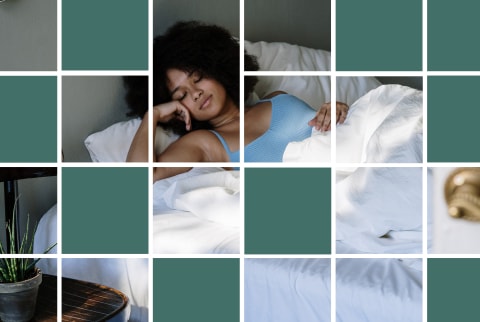We all have nuanced circadian rhythms, unique sleep needs, and a host of other factors that contribute to how well (or not well) we’re sleeping. And the good news is, leading sleep researchers—and leading sleep products—are now setting the stage for everyone to achieve consistent, restful sleep. This is why in 2023, we can expect to see an uptick in people minding their sleep, and further, creating a sleep regimen that’s personalized to them. And based on the forecast growth in the sleep aids market, it would appear people are catching on to this. Seemingly every day, there are new advances in personalized sleep technology. Pillows designed for side sleepers? No problem. Alarm clocks to simulate a natural sunrise? You’ve got it. A wearable device to accurately track your sleep patterns over time? That’s a thing too! This increase in sleep tech doesn’t really come as a real surprise, though, given the surge in sleep problems1 seen globally since the start of the COVID-19 pandemic, coupled with the fact that work and social schedules can often misalign with someone’s natural circadian rhythm. All the more reason to personalize your sleep regimen with products and lifestyle adjustments that work for you. After all, even the common advice of getting eight hours of sleep per night has been myth-busted to not work for everyone. As neuroscientist Tara Swart, M.D., Ph.D. tells mindbodygreen, some people simply need more sleep than others, and some are night owls while others are early birds. “Sleep patterns can also vary with age, with notable patterns such as teenagers needing to sleep late in the morning, and older people generally requiring less sleep than younger people,” she explains. And speaking of night owls, according to board-certified sleep specialist Michael J. Breus, Ph.D., knowing which “chronotype” you are is key. While some folks, like bears and lions, are happy to rise with the sun, dolphins and wolves would prefer to sleep in and stay up late, he explains. Understanding these preferences allows you to make lifestyle decisions that factor in your circadian rhythm, so you’re not constantly working against it. “Sleep turns out to be a very personal topic, and it can change over time based on your hormones, your stress level, even your weight or medical conditions, not to mention possible medications you may be taking,” Breus tells mindbodygreen, adding that knowing your chronotype is one of the easiest ways to find a sleep routine that works for you. Adam Tishman, the co-founder of sleep company Helix tells mindbodygreen that a lot of thought goes into their customizable mattresses. Taking into account things like physical needs, spinal alignment, comfort preferences, and more, Helix allows you to take their Sleep Quiz to find the best mattress for you, Tishman says. As interest grows in improving sleep quality, so, too, do the strides made in the sleep space. Even ancestry sites like 23andMe are starting to include information on chronotype optimization in their reports, highlighting the importance of understanding your own unique biology when it comes to sleep. As the company notes on its website, there are “genetic associations” to our sleep preferences, and in order to figure out someone’s natural wake-up time, 23andMe looked at 450 genetic markers associated with being a morning person versus a night person. Then of course we’ve got the countless sleep apps available right at our fingertips, like Sleep Cycle or Sleep Reset, plus helpful bedroom additions like blackout curtains, weighted blankets, and quality sleep supplements. Swart, for instance, swears by magnesium baths, white noise, and aromatherapy for sleep—but again, it’s all about figuring out what works for you. Read our full trend list for 2023 here.



